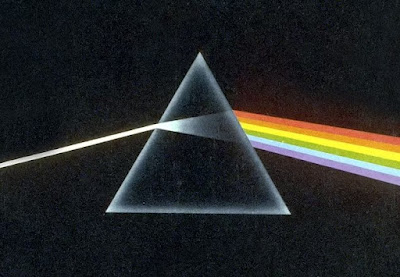Before things get too serious here at Rock On Vinyl, I thought it might be fun to post a song / album at the end of each month, that could be categorized as being either Weird, Obscure, Crazy or just plain Korny.
With hits like ‘Another Brick in the Wall’, ‘Comfortably Numb’ and ‘Wish you were here’, this album can be enjoyed by Pink Floyd fans of all ages – all the songs are slowed down to relaxing, gentle versions that still have all the prog-rock character of the originals.
Forget simply feeling relaxed at baby’s bedtime – you’ll feel 'comfortably numb' when you play these beautiful rock lullabies and watch your little mite gently drift off to sleep.
Sweet Little River have also released dozens of other 'Babies Go' titles covering bands like The Beatles, The Rolling Stones, The Eagles, Abba, Elton John, Queen and The Bee Gees to name but a few. For a full listing see HERE
Pink Floyd finds a new audience as scientists think The Dark Side Of The Moon can help lull your BABY to sleep
* Pink Floyd's The Dark Side of the Moon contains elements of good lullabies
* The band's music has influenced the creation of the perfect tune for babies
%20Roger%20Waters,%20Nick%20Mason,%20David%20Gilmour%20and%20Richard%20Wright.jpg) |
| (L-R in 1971) Roger Waters, Nick Mason, David Gilmour and Richard Wright |
The British Academy of Sound Therapy has produced a piece of music based on decades of scientific research which is all but guaranteed to get a baby to drift off. It contains watery sounds like those in the safety of the womb, soothing wind chimes and the calming clatter of rainsticks.
Underpinning it is the influence of Pink Floyd’s seminal classic The Dark Side Of The Moon. While it may not seem like a classic for the under-ones, the album contains many elements good for lullabies, according to Lyz Cooper, who founded the British Academy of Sound Therapy and produced the lullaby in collaboration with music producer Sillkey, based on a commission by supermarket Aldi’s baby and toddler brand, Mamia.
Ms Cooper said: ‘While older lullabies like Baa, Baa Black Sheep have their place, the soundscapes of Pink Floyd provide real inspiration for getting babies to sleep.
Pink Floyd take you on a musical journey, very much like the journey to sleep in a lullaby, often without the distraction of vocals. The kind of music which aims to alter consciousness, and get people to turn on, tune in and drop out, is also very good for a chilled-out baby. The influence of these songs really will help them drift away.’
Pink Floyd songs which are reflected in the lullaby include Wish You Were Here, which starts with white noise.
The lullaby contains a warmer version of this sound, which may be reminiscent of the womb.
A soundscape similar to that of the lullaby can also be heard in the first few minutes of the Pink Floyd song Shine on You Crazy Diamond, which features chimes and rich droning sounds like those in their lullaby. [extract from dailymail.co.uk]
The lullaby is five minutes and 18 seconds long, because research shows five minutes is the amount of time it takes the average baby to relax, based on tracking infants’ decelerating heartbeats.
The rhythm of the lullaby, called Drift, is set at 50 beats per minute, which is just a bit slower than a normal resting heart rate, so it may remind a baby of their mother’s heartbeat in the womb without being too fast to stop them falling asleep.
When I first saw the title of this CD I thought it was going to be another Crazy & Korny rendition of Pink Floyd songs sung with 'baby' voices (in the same vain as another earlier WOCK posting called the Beatle Barkers) but this is not the case. Rather, this month's WOCK on Vinyl post ticks boxes but not for the usual categories. The W in this post is for Womb while the C is for Cradle. Songs are in MP3 (320) format (thanks to Mr Weird & Wacky for the RIP)
Warning: Do not play the bonus track "Drift" while driving - for fear of falling asleep at the wheel.
01. Wish You Were Here
02. Time
03. On The Turning Away
04. Another Brick In The wall
05. Money
06. Learning To Fly
07. Echoes
08. Hey You
09. Comfortably Numb
10. A Great Day For Freedom
11. Sorrow
12. Us And Them
13. Shine On You Crazy Diamond
14. High Hopes
15. Drift (Bonus Lullaby Inspired By Pink Floyd Sounds)
Babies Go Pink Floyd Link (75Mb) New Link 02/09/2023























.jpg)

.jpg)























.jpg)


.jpg)







.jpg)






